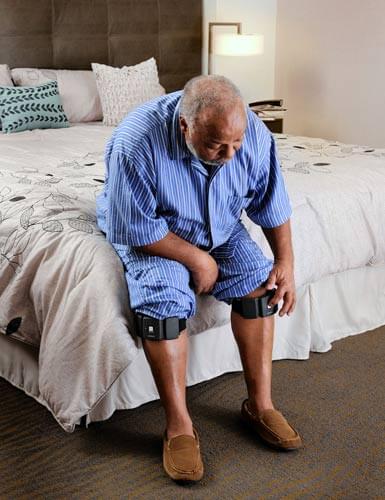(StatePoint) One of the simplest things you can do for your health is to get enough sleep, say experts. Unfortunately, many Americans have difficulty sleeping, making this seem like a simple task, but it can be anything but simple.
According to the National Sleep Foundation, the average American sleeps about six hours and 55 minutes per night during the week, and 15 percent of adults sleep less than six hours per night.
“Lack of sleep can take a significant toll on your overall health and interfere with some of your daily activities,” said Dr. Michael Thorpy, director of the Sleep-Wake Disorders Center at the Montefiore Medical Center in New York.
Almost everybody has trouble sleeping now and then, but many Americans experience significant problems getting to sleep or continually wake up in the middle of the night.
Such problems may be clinical symptoms of insomnia. According to the National Sleep Foundation, if you have trouble falling asleep at night or staying asleep, or you wake up in the morning feeling unrefreshed, you may be suffering from insomnia.
Insomnia can affect people in different ways. Some sufferers have trouble initially getting to sleep, while others wake up in the middle of the night and have difficulty falling back asleep.
To help you get better sleep, Dr. Thorpy suggests these simple tips:
• Set and stick to a sleep schedule. Establish a regular bedtime and wake time.
• Set aside time at night to “wind down.” Spend some quiet time before bedtime. Such activities as watching TV, using the computer or working right before bedtime, or in the bedroom, can make it harder to fall asleep.
• Avoid caffeine and alcohol before bed.
• Exercise regularly. Just don’t exercise rigorously near bedtime and check with your doctor before starting an exercise regimen.
• Don’t clock-watch. If you awaken in the middle of the night and stay in bed, don’t lie there staring at the clock. And don’t watch TV or use your laptop or cell phone, because these technologies stimulate the brain, making it tougher to fall back to sleep.
If these tips don’t help, speak with your healthcare professional to help determine if you are suffering from insomnia and require treatment.
More information regarding insomnia is available at the National Sleep Foundation website at www.sleepfoundation.org.























